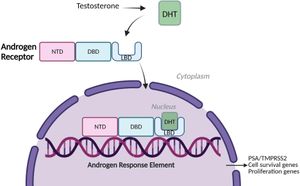On January 20, 2022, just hours after assuming office, President Donald Trump signed an executive order aimed at eliminating birthright citizenship, significantly changing how citizenship is granted to children born in the United States. This controversial order states explicitly that US-born children of undocumented parents are not automatically granted US citizenship, igniting immediate legal challenges across the nation.
The response was swift, with legal action taken by at least 22 states. Among the first to act was Washington State’s Attorney General, Nick Brown, who presented his case just the day after Trump's inauguration. During a press conference held in Seattle, Brown announced his intention to file an emergency motion to block the enforcement of the executive order. “On Monday, one man, the President, said... he is wrong,” Brown stated emphatically, asserting the fundamental value of citizenship for children born to immigrants.
Within days, on January 23, Brown had the opportunity to argue his case before U.S District Senior Judge John C. Coughenour. Brown’s initial victory came as Judge Coughenour expressed skepticism toward the Trump administration's arguments, pointing out the controversial nature of the executive order. "I can’t recall another case where the question presented is as clear as this one," Coughenour remarked as he temporarily blocked the order, labeling it as “blatantly unconstitutional.”
This victory was celebrated by Brown, who recognized it as merely the first step. “This is step one,” he declared, underscoring the need for continued legal efforts as the executive order was set to take effect on February 19. The Washington State Governor, Bob Ferguson, affirmed his administration's support for the lawsuit, emphasizing the potential impact the order could have on thousands of children.
The concerns raised by the plaintiffs were significant. According to estimates, if fully implemented, Trump’s order could render about 7,000 children from Washington State undocumented at birth, with nationwide projections estimating about 150,000 children annually would be deprived of their citizenship under such policies. Brown argued, “This executive order is not just about immigration policy; it renders them as undocumented at birth” and “citizens of no country at all.”
Legal arguments against the executive order primarily hinge on the Fourteenth Amendment, particularly its Citizenship Clause. This clause, ratified following the Civil War, asserts, “All persons born or naturalized in the United States, and subject to the jurisdiction thereof, are citizens of the United States...” Critics of Trump’s order argue this principle has been foundational to American identity for over 156 years and should not be undermined by executive decree.
More states joined the legal fray. On January 21, California and Massachusetts, among other Democratic-led states, filed suits against the Trump administration, reinforcing arguments against the constitutional validity of the order. New York Attorney General Letitia James, notable for her hold on the Trump Organization through previous civil actions, also lent her support to the multi-state suit, condemning the executive order as unconstitutional. “Our constitution is not open to reinterpretation by executive order or presidential decree,” James stated, seeking to reaffirm the enduring principle of birthright citizenship.
The New Hampshire lawsuit, filed by pro-immigration activist groups, articulated the belief shared by many: “Not even the President could deny children born in America their rightful place as citizens.” The suit referenced the deep-rooted constitutional commitment established by the framers, stressing, “The principles enshrined by our Constitution have enabled generations of children to pursue their dreams and build a stronger America.”
Beyond the birthright citizenship order, Trump’s administration announced plans for the creation of the Department of Government Efficiency (DOGE), provoking additional lawsuits aimed at tracking this body. Critics describe DOGE as operating with minimal oversight, led by wealthy individuals like Elon Musk and Vivek Ramaswamy, sidelining public input and democratic processes.
Within the courts, the challenges to birthright citizenship represent not only governmental policies but the broader American values tied to immigration and the rights of individuals. Each legal argument presented reinforces the position taken by opposition states, backed by the Fourteenth Amendment’s clear intentions.
These legal battles are set to continue shaping the debate around birthright citizenship as various plaintiffs prepare for upcoming court dates, determined to protect established citizenship rights against what they view as unwarranted and unconstitutional overreach by the executive branch.
The political ramifications of these court decisions could extend beyond the immediate issue of citizenship, affecting perceptions of the judicial system's role and the limits of executive power. This moment encapsulates significant contention over immigration policy as the cases move through the judicial system, inviting not only legal scrutiny but also shining a light on America’s core national values.



